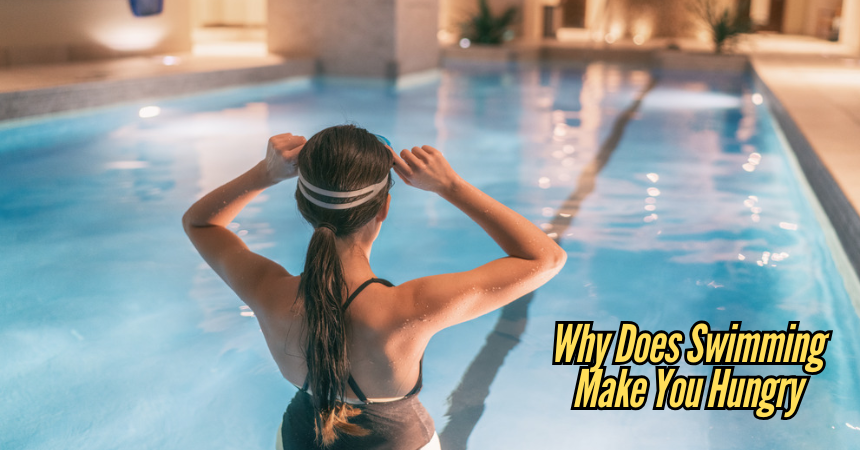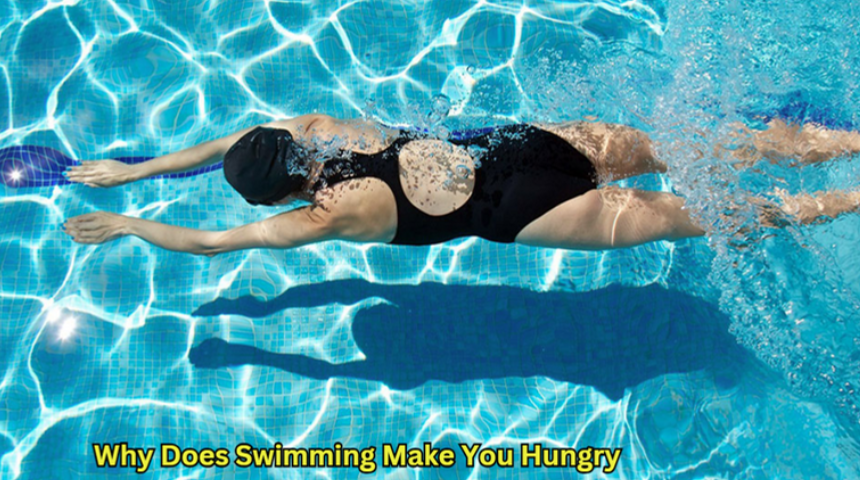Why does swimming make you hungry- This is a question that many swimmers, including myself, have asked after finishing a session in the pool.
Swimming often leaves you feeling ravenous, more so than other forms of exercise. The combination of water temperature, calorie burn, and hormonal responses creates a unique effect on your body.
It’s not just about burning energy; there are deeper scientific reasons behind this phenomenon. I’ve felt this hunger time and again, especially after intense workouts.
Understanding why swimming makes you hungry can help you manage it better. Post-swim hunger is natural and can be a sign of an effective workout.
When you know the reasons behind it, you can fuel your body the right way. Swimming’s impact on hunger is fascinating and worth exploring. Let’s dive into the details to uncover why this happens.
Why Does Swimming Make You Hungry?
Swimming makes you hungry because your body burns a lot of calories. The cold water lowers your body temperature. This makes your body work harder to stay warm.
That effort uses up energy quickly. After swimming, your body needs to refuel. Intense exercise like swimming increases your appetite. Blood flow also shifts to support your muscles.

This slows digestion temporarily. Hormones like ghrelin may rise after exercise, making you feel hungrier. I always notice this after a long swim. Understanding this helps manage post-swim hunger better.
The Science Behind Hunger After Swimming
Swimming is a full-body workout that burns a lot of calories. Your muscles use energy to propel you through the water, which leads to a significant calorie deficit.
Another factor is temperature regulation. Being in water, especially cold water, lowers your body temperature. To maintain warmth, your body works harder and burns more energy.
This process triggers hunger to replenish the lost fuel. Hormonal changes also play a role. Intense exercise, like swimming, increases the production of ghrelin, the hormone that stimulates appetite.
Blood flow shifts to your muscles during swimming, temporarily slowing digestion. Once you’re out of the pool, your body shifts focus back to digestion, amplifying hunger signals.
These combined factors make swimming uniquely hunger-inducing. The science behind it shows how much effort your body puts into swimming and recovery.
Factors That Influence Post-Swim Hunger
The intensity of your swim has a direct impact on how hungry you feel afterward. Vigorous swimming sessions burn more calories, leaving your body in greater need of energy.
Duration also matters. The longer you’re in the water, the more energy your body uses, increasing your appetite. Water temperature plays a big role as well.

Swimming in colder water demands more energy to keep your body warm, which intensifies hunger. Personal metabolism can also influence how hungry you feel.
Some people naturally burn calories faster, leading to stronger hunger signals. The type of stroke you swim can have an effect too.
High-energy strokes like butterfly or freestyle use more energy than gentler strokes like breaststroke. All these factors work together to affect your post-swim appetite. Knowing them can help you plan meals and snacks accordingly.
Benefits Of Post-Swim Hunger
Feeling hungry after swimming isn’t necessarily a bad thing. It’s often a sign that your workout was effective. Hunger signals that your body has used energy and needs refueling.
This is an opportunity to provide your body with nutritious foods that support recovery. Eating after swimming helps replenish glycogen stores, repair muscle tissue, and restore energy levels.
Post-swim meals can enhance your performance for future workouts. It’s also a chance to develop healthier eating habits. By choosing balanced meals, you can improve overall fitness and well-being. Hunger after swimming is a natural response to physical exertion.
Embracing it as part of your routine can make swimming even more rewarding. Instead of fearing hunger, use it to your advantage by fueling your body the right way.
Managing Hunger After Swimming
Managing post-swim hunger starts with understanding your body’s needs. Choosing the right foods can make a big difference. I always recommend meals that include protein, carbohydrates, and healthy fats. Protein helps repair muscles, while carbs replenish energy.
Healthy fats keep you feeling full longer. Snacks like bananas, nuts, or yogurt are great options if you’re not ready for a full meal. Eating slowly can help you avoid overeating.

Planning your meals ahead of time ensures you have healthy options ready. Drinking water is also important since dehydration can sometimes feel like hunger.
Avoid sugary or processed foods, as they may satisfy hunger temporarily but won’t provide lasting energy. With the right approach, you can satisfy hunger without overindulging.
FAQ
Why does swimming make me so hungry?
Swimming burns calories quickly and lowers your body temperature. Your body needs to refuel to recover.
Does cold water increase hunger after swimming?
Yes, cold water makes your body work harder to stay warm, burning more energy and increasing hunger.
Why do I feel hungrier after swimming than other exercises?
Swimming uses your whole body and burns energy faster. The cool water also heightens your appetite.
What should I eat after swimming to stay full?
Choose meals with protein, carbs, and healthy fats. Balanced options like nuts, yogurt, or fruits work well.
Can I avoid overeating after swimming?
Yes, plan your meals and eat slowly. Drinking water and choosing nutrient-dense foods help control hunger.
Conclusion
Swimming makes you hungry because your body works hard to burn calories, stay warm, and recover. It’s a natural response to an effective workout.
Understanding this hunger helps you manage it better. Choosing balanced meals and healthy snacks can turn post-swim hunger into a recovery tool.
Embrace it as part of your fitness journey. Planning ensures you’re ready to refuel with the right foods. Swimming’s unique impact on appetite is both fascinating and beneficial.
With the right approach, you can make the most of your workouts and support your health. Hunger after swimming is not a challenge but an opportunity to nourish your body and achieve your fitness goals.